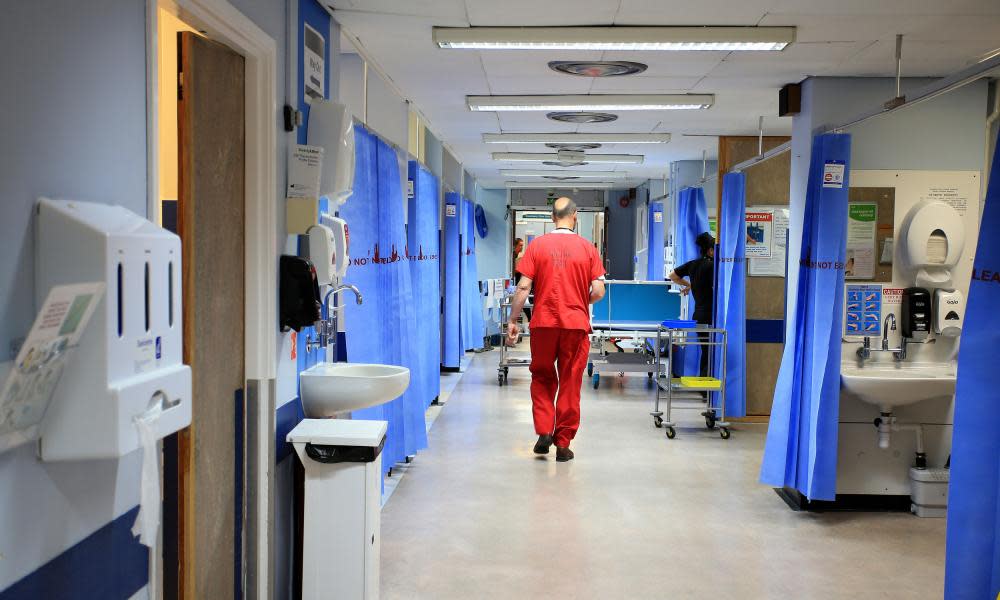£1bn bedblocking fund not being spent properly, say 40% of hospitals

More than 40% of British hospitals say they cannot guarantee patients will receive safe care next winter because a sum of £1bn earmarked to reduce “bedblocking” is not being spent properly.
Hospital bosses claim that many local councils are failing to put the emergency funding into schemes to help patients get home quicker by improving social care support for them.
As a result, the NHS is likely to come even closer to falling over than it did in 2016-17, according to a new report from NHS Providers, the trade association that represents most NHS trusts in England.
Government plans that the £1bn will free up 2,000-3,000 hospital beds are not being realised, it claims.
Serious problems last winter saw record numbers of hospitals temporarily unable to cope with the sheer number of patients needing treatment and unprecedented numbers of patients forced to wait – in ambulances outside A&E units and on trolleys in corridors – for a bed before they could be admitted.
Chris Hopson, NHS Providers’ chief executive, said hospitals “are approaching the cliff edge” of their ability to cope next winter because many councils have not committed the money to reduce what the NHS calls “delayed transfers of care” – patients who are trapped in hospital, despite being medically fit to go, because social care to keep them safe after being discharged is unavailable.
“The forecast from the NHS frontline is clear: unless we do something now to manage the risk for next winter, there is trouble ahead,” said Hopson.
“Last winter, NHS staff responded heroically to extraordinary pressures. But safety and standards of care were compromised.
“In some places the service was overwhelmed for short periods. We must not allow that to happen again.”
New research by NHS Providers found that 43% of trusts were not confident of being able to provide safe, high-quality care in winter 2017-18.
When trusts were asked about discussions they have had with their local council about the extra £1bn given to social care, only 28% said they had been told that the money would help to reduce delayed transfers of care.
Just 34% of trusts believed that councils were giving a high priority to helping the NHS to reduce beds being taken up by such patients. And 44% said the money would not make it easier for them to manage the pressures that next winter will bring.
Hospitals are struggling because of a lack of capacity across both the NHS and social care systems, for example of acute beds, services in the community and mental health care, Hopson added.
“If we fail to invest now to cover those capacity gaps, there is a serious risk of wider failures than last winter with the safety of more patients at risk.”
Labour MP Jonathan Ashworth, the shadow health secretary, said NHS Providers’ report was an “extraordinary warning [that] is yet another damning indictment of Theresa May’s incompetence in running our NHS and social care system”.
He added: “The prime minister must understand that another repeat of last winter is simply intolerable.”
The hospitals’ claims sparked an angry response from the Local Government Association. It was “misleading” to see the £1bn as money to ease winter pressures in the NHS, said Izzi Seccombe, the chair of its community wellbeing board.
The NHS itself should do much more to provide more care outside of hospitals before criticising councils, Seccombe, a Conservative councillor, added.
“The NHS could make a number of changes to reduce delays it is responsible for, such as improving patient flow or investing in community care, since waiting for non-acute care is one of the most common causes of NHS-related delays.”

 Yahoo News
Yahoo News 
